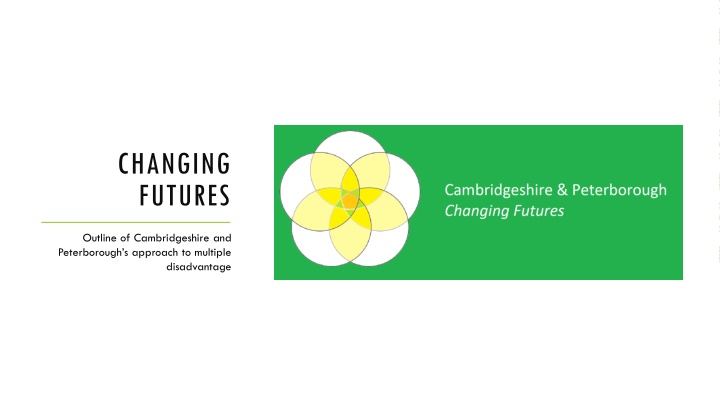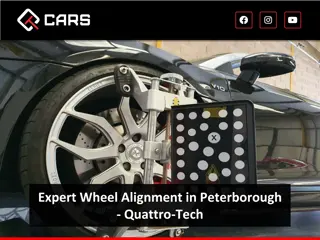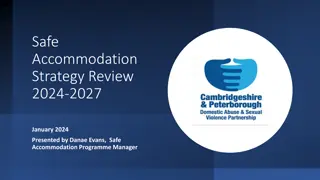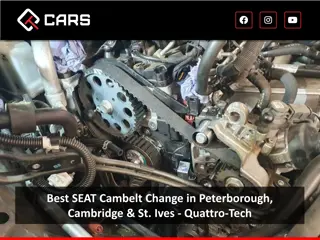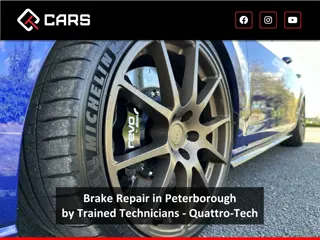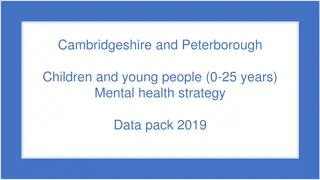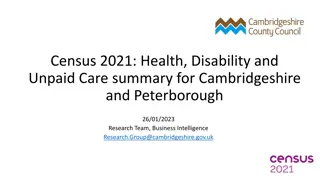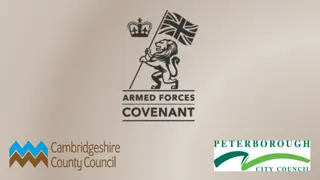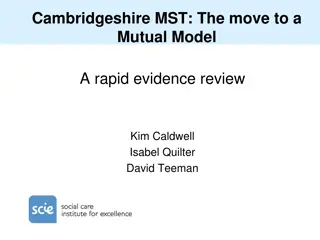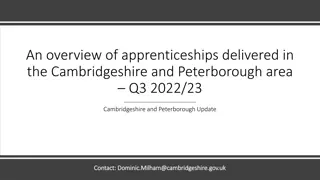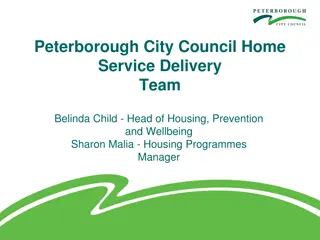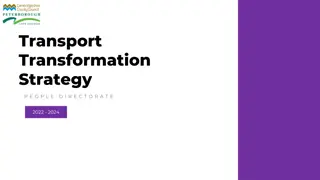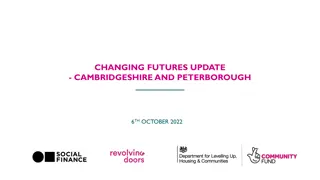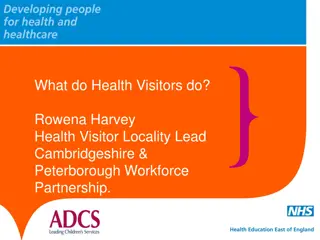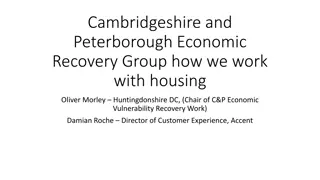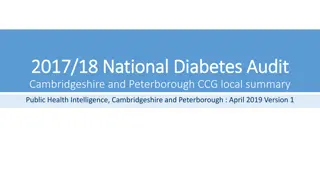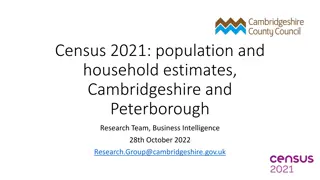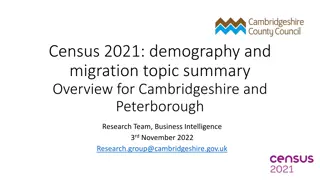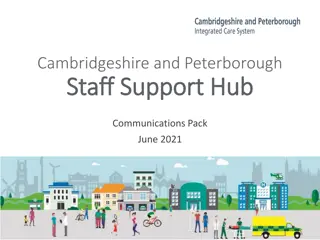Transforming Lives: Cambridgeshire and Peterborough's Approach to Multiple Disadvantage
Exploring how Cambridgeshire and Peterborough are addressing multiple disadvantages through their innovative approach, focusing on supporting individuals facing homelessness, substance misuse, mental health issues, criminal justice involvement, and domestic abuse. The initiative aims to create more effective collaboration among organizations, tailored support for each individual, and inclusive systems driven by lived experiences to break the cycle of disadvantage.
Download Presentation

Please find below an Image/Link to download the presentation.
The content on the website is provided AS IS for your information and personal use only. It may not be sold, licensed, or shared on other websites without obtaining consent from the author.If you encounter any issues during the download, it is possible that the publisher has removed the file from their server.
You are allowed to download the files provided on this website for personal or commercial use, subject to the condition that they are used lawfully. All files are the property of their respective owners.
The content on the website is provided AS IS for your information and personal use only. It may not be sold, licensed, or shared on other websites without obtaining consent from the author.
E N D
Presentation Transcript
CHANGING FUTURES Outline of Cambridgeshire and Peterborough s approach to multiple disadvantage
INVITATION TO BID At the end of 2020, the government s Ministry of Housing Communities and Local Government (MHCLG) invited expressions of interest from areas who wanted to take a new approach to tackling multiple disadvantage. We felt well placed to apply, as we already work with Making Every Adult Matter to run our Counting Every Adult teams; one covering Cambridgeshire and one covering Peterborough. You can find out more about Counting Every Adult here.
EXPRESSING AN INTEREST Partners from across Cambridgeshire and Peterborough submitted an expression of interest in January 2021. In March, MHCLG announced that we were one of the 21 areas to be shortlisted from 97 areas that applied. You can find the expression of interest form here, which a number of partners and people with lived experience helped us with. Once we had made it onto the shortlist, we engaged consultants at Social Finance to help us prepare the bid by the deadline and within the framework MHCLG had provided.
WHAT IS MULTIPLE DISADVANTAGE? Homelessness People are said to be muliply disadvantaged when they experience at least three of the following five situations: Substance misuse Criminal Justice o Homelessness o Substance misuse o Mental health issues Mental health Domestic abuse o Domestic abuse o Criminal justice
WHAT DO WE WANT TO CHANGE? We want to extend and enhance the Counting Every Adult approach, so more organisations in our area can work together more effectively helping people find their way out of multiple disadvantage, at a pace and in ways which suit them; not imposing plans which each organisation might require. These plans (which quite often conflict) may not take about of the effect of the person having more than one issue , and are not trauma informed. In other words, each organisation concerned with one of the 5 areas of disadvantage tries to help people - but by taking things one at a time may end up with actions unsuited to that individual. Like fitting a square peg into a round hole. It s not surprising that some people fall through the gaps, or give up, and end up encountering more disadvantages than they started with.
WHAT ELSE DOES OUR BID DO? Our bid also allows us to use the learning we have gained over the last ten years (and in future) to evolve systems that impact people facing multiple disadvantage to improve their outcomes to reduce the number of people who fall in to multiple disadvantage. A key feature of this work will be to co-produce systems at all levels; involving, listening to and learning from those who have lived experience.
LISTENING We held workshops to gather input from organisations, individuals and people with lived experience to help us shape and focus the bid. At the same time, lots of individual conversations and specialist input from the organisations involved This helped us identify links to bids for funding for other projects which could link to Changing Futures. Two examples of the results of this work are included, full versions are available via links on last slide for more detailed viewing 1. What does success look, sound and feel like 2. A miro board where everyone contributed to the outcomes for individuals services and the whole system (similar to post-it notes on a whiteboard, but on- line)
WHAT IS SUCCESS? Quotes from post-its added during Miro workshop sessions
OUR MIRO BOARD Used to create our theory of change
WHAT NEXT? We await the outcome of the bid in June 2021, and in the meantime are gently preparing in the hopes we will be successful. Many thanks to everyone who has been involved so far! If you would like to know more or have any feedback, please contact sue.beecroft@cambridge.gov.uk or tom.tallon@cambridgeshire.gov.uk
LINKS Here are links to our bid documents: Our bid: Delivery Plan and supporting document, Q1 and Q7 Assessment Form Organisation charts: the Governance Model and the proposed Core Team Financial requirement for the work Our plan, known as a Theory of Change Outcome measures Our theory of change miro board (this is a picture file you can zoom in on) Vision and outcomes, including what is success on the last slide
THANK YOU WE WILL LET YOU KNOW WHEN WE HEAR THE OUTCOME OF THE BID!
